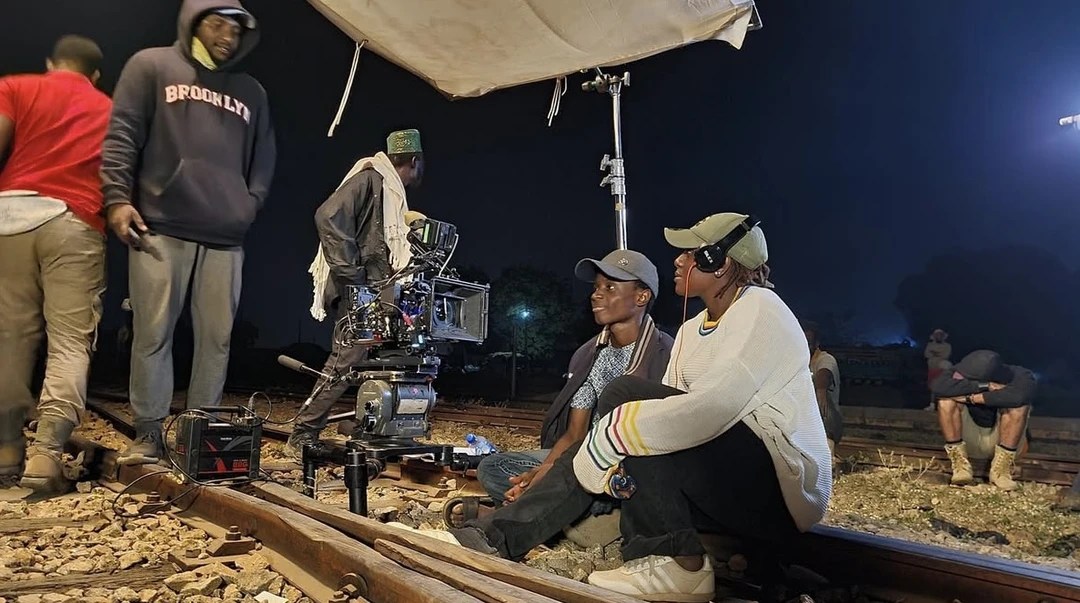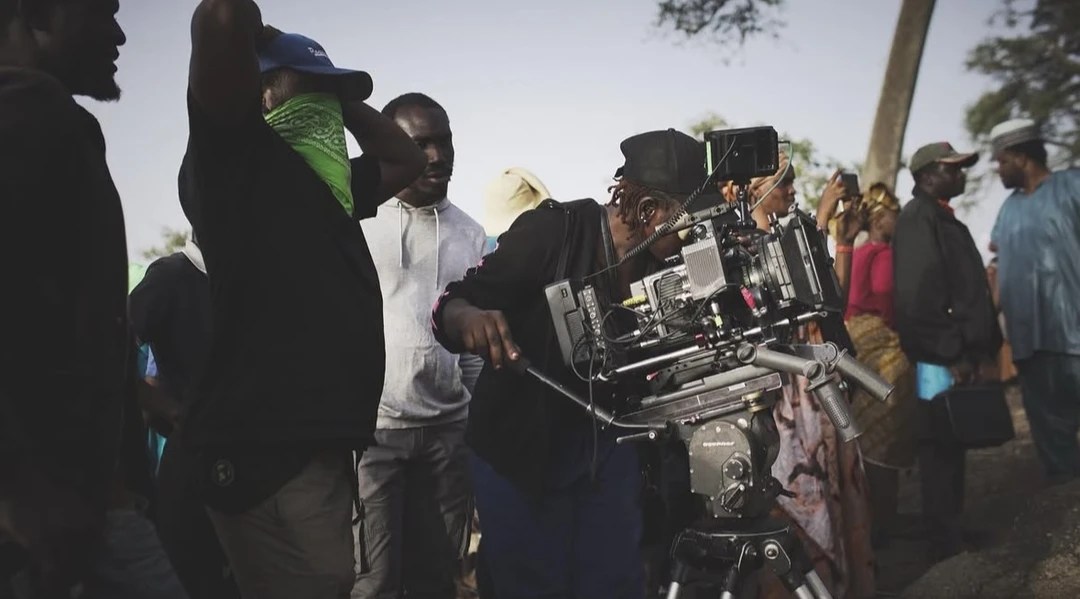With her debut feature, Al Jana, Kaduna-born filmmaker Grace Yakubu steps into the industry with a story that is as personal as it is urgent. The film, self-funded and painstakingly produced, tackles the damaging labels placed on children and adults in northern Nigeria—branding them as witches or members of secret societies. It’s a story rooted in ignorance, fear, and silence, one she has carried since childhood, and one she now brings to the screen with determination and grit.
Inspiration Born from Personal Memories
Yakubu’s earliest memory of stigma is tied to a childhood experience in Kano. “A stubborn neighbor was often called Shegiya Al Jana,” she recalls in an exclusive interview with The Nollywood Reporter. “The phrase means ‘possessed girl’ or ‘demonic spirit.’ It was thrown casually at anyone considered strange or difficult, but it carried a weight that lingered in my mind.”

As she moved from Kaduna to Lagos and later to the East, she began to notice how pervasive these labels were. “Children accused of witchcraft, or those with misunderstood behaviors, were accused of belonging to secret societies. Families were torn apart by superstitions. These stories are everywhere, yet never told on screen,” she says.
For Yakubu, the urgency to make Al Jana came from years of seeing these injustices. She recalls “Gidan Gara” in Kaduna, where “difficult” children were taken and often subjected to abuse. In the East, she encountered groups of children cast out as witches, left to wander the streets. “I’m not making a movie about witchcraft,” she clarifies. “I want to show how society displaces people simply because they are different.”

Writing and Building the Film
Yakubu’s background was in television and documentaries, not film. At first, Al Jana was meant to be a short but, as the script grew—74 pages and counting—it demanded to be something more. Determined to do the story justice, she immersed herself in learning. “I realized my vision required my own learning,” she says. Tutorials, script rewrites, and consultations with industry figures like Kenneth Gyang became her daily routine.
She also conducted interviews with victims of labeling, weaving their testimonies into the narrative. “The hardest part was ensuring it was professionally written,” she recalls. But feedback from peers encouraged her to keep refining the script until it reflected her intent.
Making the Vision Real
Bringing Al Jana to life came with intense challenges. The project was self-funded, initially budgeted at ₦5–6 million, but costs soared as the scope expanded. Her lack of experience with post-production, editing, and camera work meant she had to learn on the job, even enrolling in online courses to gain technical skills. “I thought you just hire an editor, and it’s done,” she laughs. “But it wasn’t that simple.”
Being a woman in the industry added another layer of complexity. Balancing motherhood with long days on set was exhausting, and there were days when actors didn’t show up or struggled to deliver. “Every member of the crew matters,” she says. “The synergy between producer, director, and crew is everything. I like synergy.”
Security concerns were ever-present. Planned shoots in Kujama were canceled after kidnapping warnings, and the military had to escort the crew to certain locations. Still, filming in Kaduna proved rewarding: community support was strong, and costs were far lower than in southern cities.

A Broader Vision for Northern Cinema
Yakubu sees Al Jana as more than a film—it’s a call to expand northern cinema beyond the confines of Kannywood. “Kaduna, Jos, Maiduguri, Benue, Sokoto—all have unique stories and cultures,” she says. She envisions what she calls “Kadawood,” a more collaborative, professional regional industry telling authentic stories that travel.
To young filmmakers, her advice is direct: “Don’t just shoot anything. Push yourselves, learn, and tell stories outside the box.”

Boldness and Disruption
Her passion for storytelling is rooted in justice and disruption. “I like to distort beliefs, challenge biases, change narratives,” she says. For Yakubu, every project must carry a message, whether it’s about women’s struggles, children’s rights, or harmful cultural practices.
She admits the balance between creativity and commercial viability is challenging. “I was thinking of an international audience,” she says. “This wasn’t about selling tickets but about telling the truth.”

Recognition and What’s Next
Al Jana has already begun to travel beyond Nigeria. The film has been submitted to more than ten festivals, with screenings confirmed in Colombia and Canada, and it featured at the recent Kaduna Film Festival. There are also plans for private screenings in the communities that supported its production.
Looking back, Yakubu is proud but practical. “Budget wisely, plan for post-production, manage actors with care, and always back up files,” she says, listing lessons learned. Looking ahead, she’s developing projects for Hausa networks and exploring themes of mysticism, taboos, women’s stories, and spirituality.
Her long-term vision is clear: to produce northern Nigerian stories with international cinematic quality. “I want to be known for outstanding films in story, picture, and depth,” she says. “Ordinary stories told in extraordinary ways.”
For now, Al Jana stands as her bold first step—a film that grew from a childhood label in Kano into a vehicle for justice, empathy, and pride. “If we don’t tell these stories,” she asks, “who will?”

